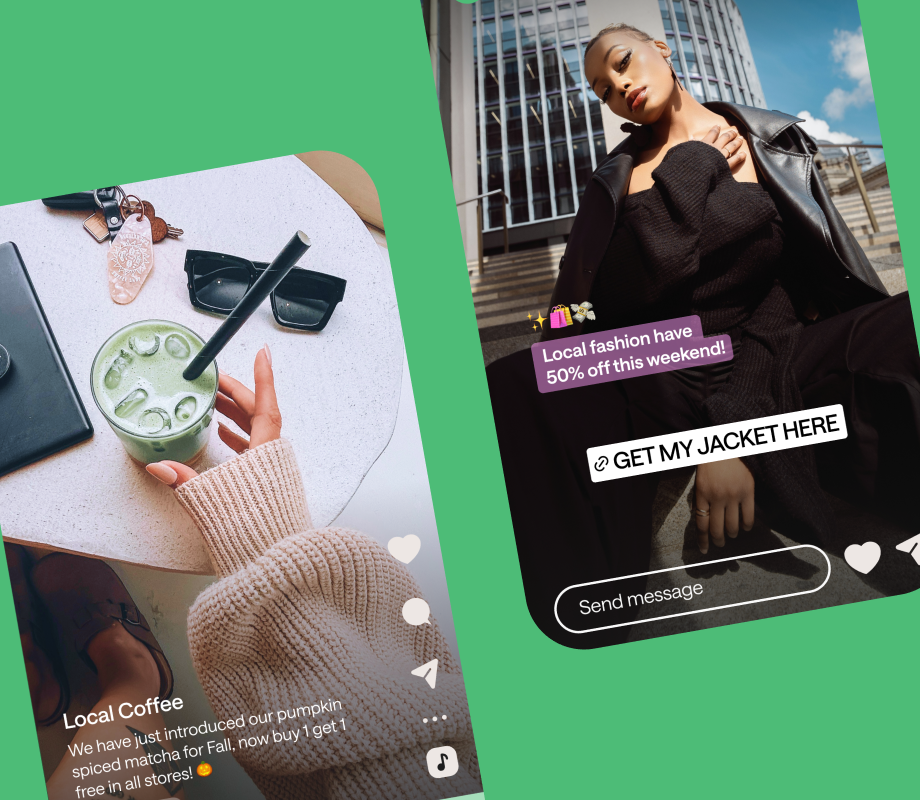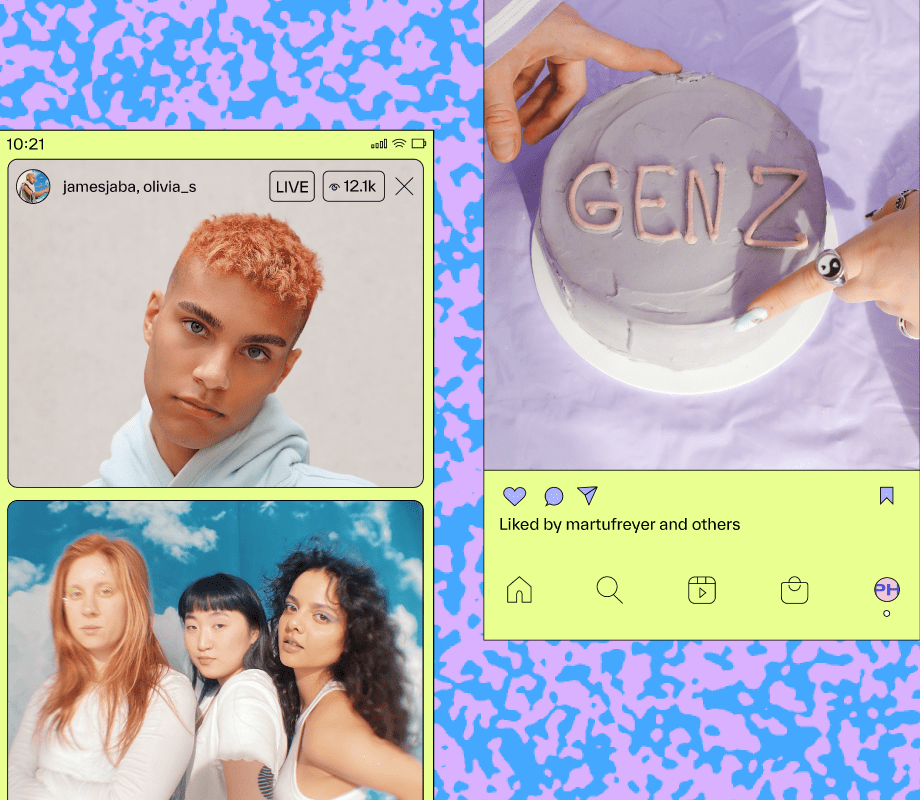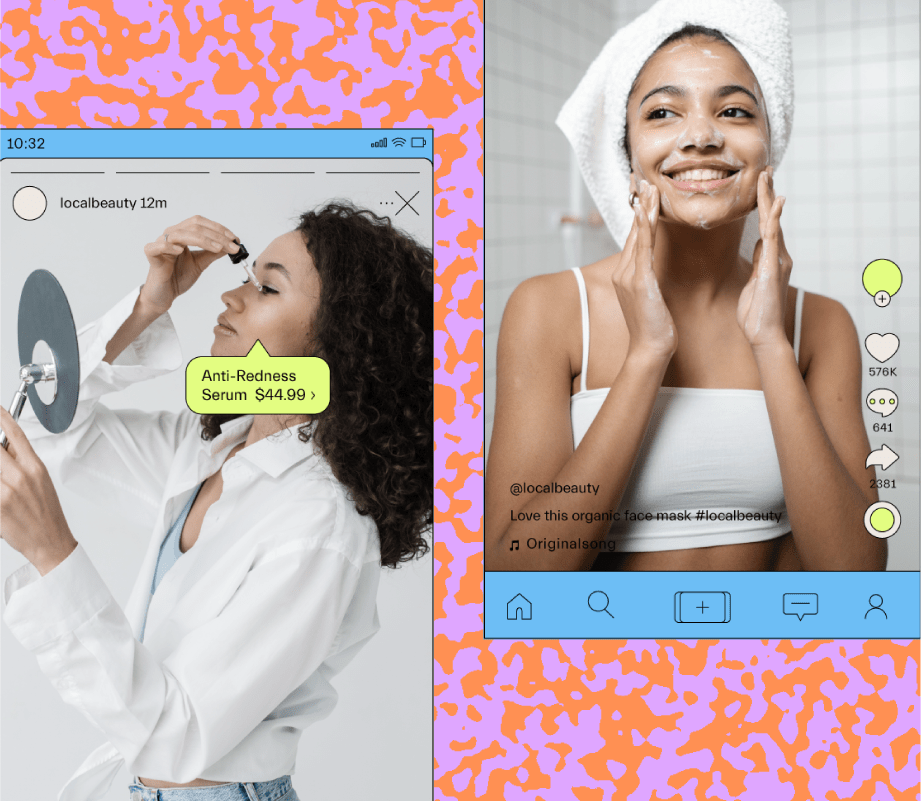Gen Z, born between 1997 and 2021, is a generation who have grown up with technology and social media.
According to McKinsey, Gen Z will account for 27% of the global workforce by 2025, significantly increasing their economic and cultural influence and making them more powerful than ever.
To reach them, marketers need to understand their unique behaviors, preferences, and the trends they care about most.
Here are the key trends shaping Gen Z in 2025, offering insights and actionable strategies for marketers aiming to capture their attention and build lasting connections.
Table of Contents
Join over 1 million marketers to get social news, trends, and tips right to your inbox!
Email AddressGen Z’s Favorite Creators
Gen Z are loyal to content creators. According to Later’s research, 58% follow creators primarily for entertainment, while 49% do so to learn about new things.
Whether it’s product reviews or how-to tutorials, content creators hold significant influence over this generation’s buying decisions.
There’s a whole heap of content creators from the micro influencers to the superstars, but let’s look at some of the creators you might already know and why Gen Z keeps supporting them.
Charli D’Amelio: Rising to fame on TikTok, Charli D’Amelio is one of the most followed influencers globally. Her collaborations with brands feel organic, making her highly relatable to Gen Z. Her transparency around mental health also connects her to her followers.
MrBeast (Jimmy Donaldson): MrBeast has built a loyal following through his large-scale stunts, philanthropic work, and engaging giveaways. He provides entertainment with a purpose, which makes him a favorite for those who value giving back.
Bretman Rock: Known for his beauty and fashion content, Bretman Rock’s unapologetic personality resonates with the generational values of inclusivity and self-expression. His content showcases the importance of authenticity and individuality in influencer marketing.
Loren Gray: Starting on Musical.ly and evolving into a multi-talented artist and entrepreneur, Loren Gray has used her platform to engage with her followers on everything from fashion to music.
Avani Gregg: Known for her creative makeup looks and bold personality, Avani Gregg rose to fame on TikTok. She has worked with top brands like Armani, demonstrating how creators are transitioning into high-end markets.
If you’re a brand that’s looking to tap into Gen Z's world, you’ll need to find and partner with influencers that align with their values and culture. And you’ll need to make it authentic too, because Gen Z can easily spot forced collaborations, and they’re drawn to creators who build genuine, transparent relationships with their audience.
Want to connect with the right creators for your audience? Later Influence’s Influencer Index has 10M+ fully contactable creators who want to work with you. Book a free demo to see how it works.
How Gen Z Shops
Gen Z’s shopping habits are driven by convenience, values, and social media influence. They prefer shopping online and make purchasing decisions based on their views of a brand’s stance on issues like sustainability and inclusivity.
That’s why brands that show genuine efforts to contribute to social causes are more likely to win over Gen Z consumers.
Some brands are already doing great things with their Gen Z audience and consumers, so let’s look at a few for some inspiration:
Patagonia - Renowned for its commitment to environmental sustainability and ethical practices. Gen Z values Patagonia's transparency and activism, including its efforts to combat climate change and promote fair labor practices.
Fenty Beauty - Lauded for its inclusivity and broad range of shades catering to all skin tones. Fenty Beauty’s founder, Rihanna, and the brand’s commitment to diversity resonate deeply with Gen Z’s values of representation and equity.
Allbirds - Favored for its commitment to sustainability and eco-friendly materials. Allbirds’ innovative use of natural resources in footwear production resonates with Gen Z’s concern for environmental impact.
Of course, it isn’t enough to just have messaging that appeals to Gen Z; the actions need to match up with this too. If a brand claims to be sustainable, but isn’t, this will be clear as day to this generation.
Marketers should also focus on convenience, such as offering simple online shopping experiences, personalized recommendations, and social media-driven purchasing options to really tap into how Gen Z shop.
Gen Z Fashion Trends
Much like their shopping habits, Gen Z’s fashion choices are also shaped by sustainability and social media trends, but also the trend of individuality. We can thank TikTok for a lot of this, as it’s driving fashion cycles, and viral trends like thrifting, upcycling, and DIY fashion.
Here are a couple of ways this is happening IRL:
Gender-Neutral Fashion: Brands like Zara and H&M are launching gender-neutral collections to cater to Gen Z’s preference for fluidity and inclusivity in fashion.
Sustainable Fashion: Gen Z’s environmental consciousness has led to the rise of platforms like Depop, where buying second-hand or upcycled fashion is popular.
While we can never stay truly on top of the rapidly changing fashion trends, we can suggest tapping into Gen Z’s preference for brands to offer eco-friendly practices, and customizable and gender-inclusive options, and collaborate with creators who represent these values.
Oh, and don’t be surprised when you see Gen Z styling “retro” outfits better than the last time they were in fashion; this is a clear skill of this generation, maybe because they have more online inspo!
Gen Z vs Millennials: How Are They Different?
While both Gen Z and Millennials are digitally savvy, there are critical differences in how these two generations interact with brands and consume content:
Content Preferences: Gen Z prefers short-form, visual content like TikTok videos or Instagram Reels. Later’s 2024 research shows that only 13% of Gen Z use LinkedIn at least once a day, while 51% don't use it at all.
Brand Loyalty: Gen Z is less brand-loyal compared to other generations. Instead, they prioritize a brand’s values and actions. If a brand doesn’t align with their personal beliefs, they’re more likely to move on. Gen Z follows brands on social media to learn about the brand, stay up-to-date with them and get entertained, so they’ll always know when something is amiss.
To successfully engage with Gen Z, brands must adapt their content strategy to cater to shorter attention spans. They should focus on visual storytelling, engaging social media formats, and purpose-driven campaigns.
What Does This Mean for Marketers?
As Gen Z’s influence grows into 2025, marketers need to adjust their strategies to meet this generation’s unique expectations. The key takeaways include prioritizing authenticity, partnering with trusted creators, focusing on sustainability, and creating content that is both entertaining and informative.
Ready to connect with Gen Z and elevate your marketing strategy? Book a demo with Later Influence today to discover how we can help your brand build meaningful relationships with this powerful generation.



